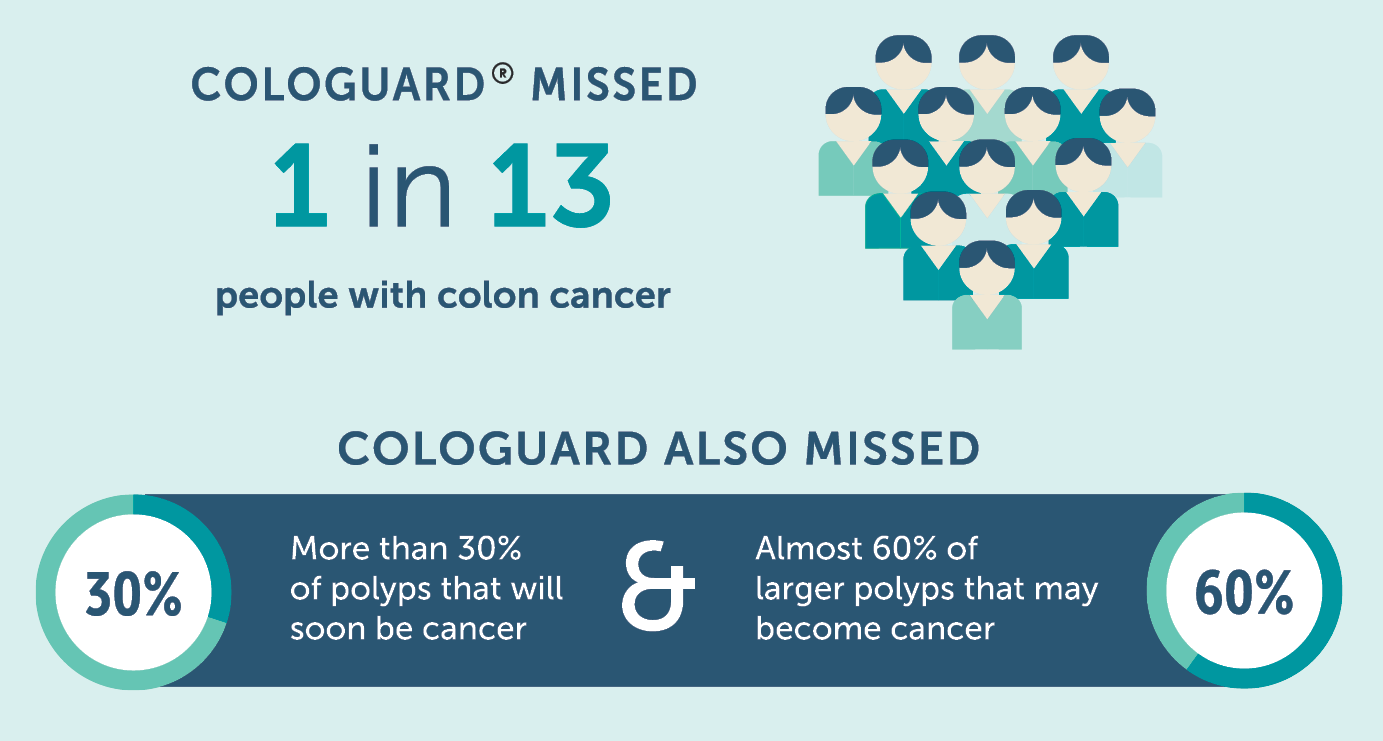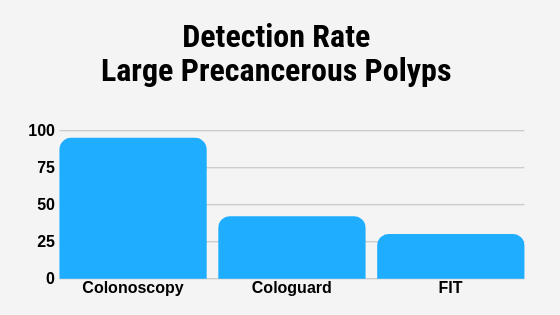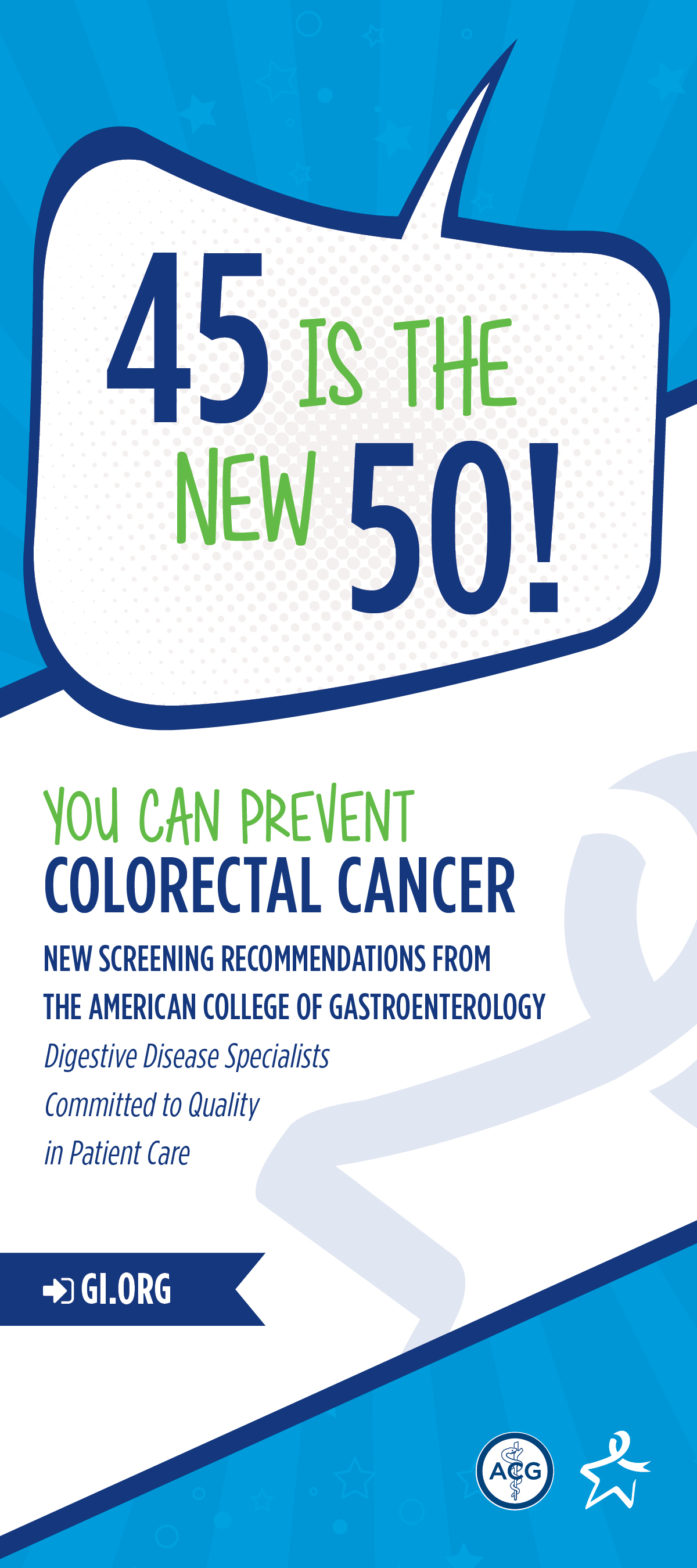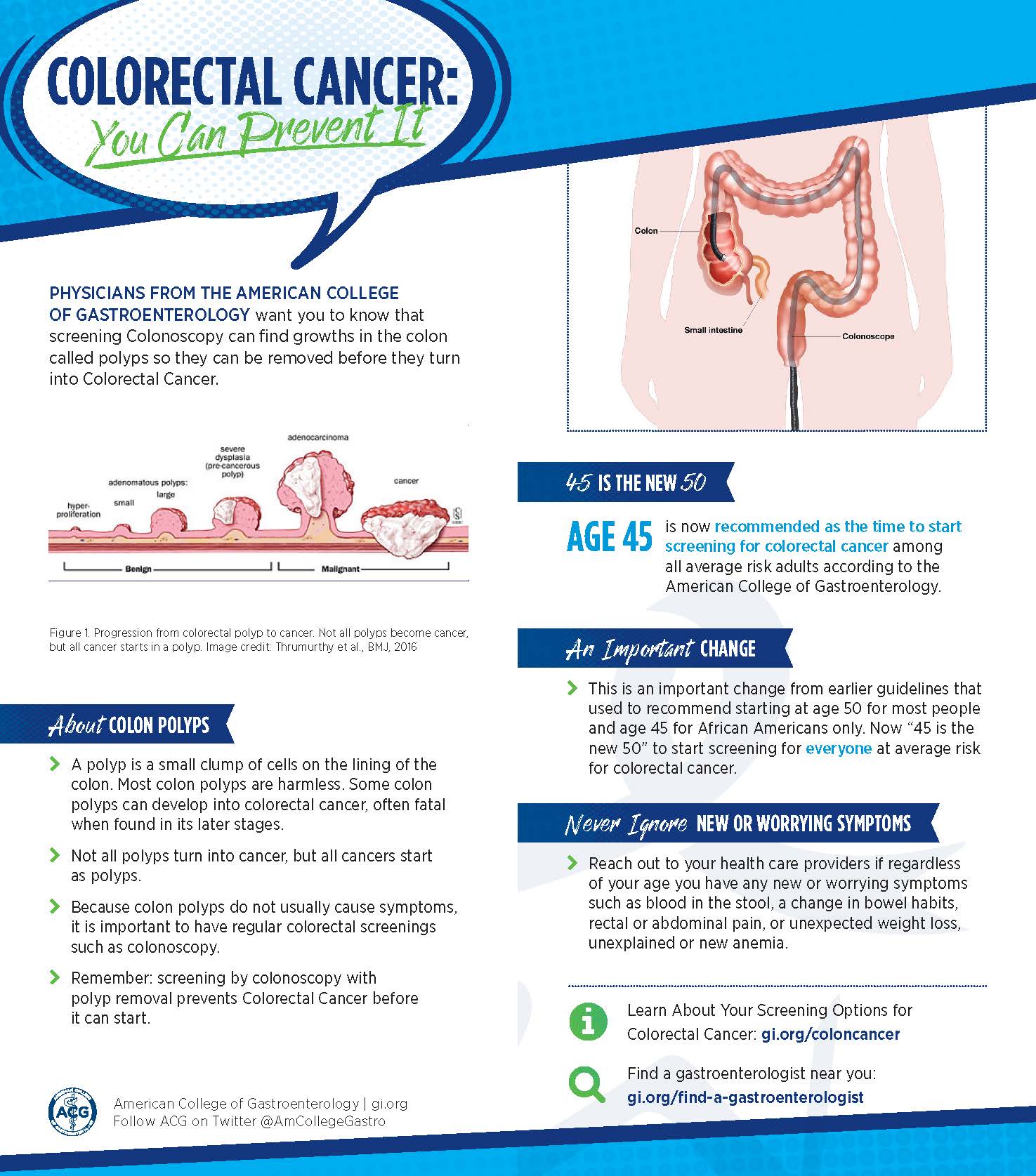Key Facts About Cologuard
Cologuard spends millions of dollars advertising the convenience of its colon cancer screening product on TV. While the commercials are entertaining and eye-catching, they gloss over critical details that every patient should understand.
1. Cologuard is not a substitute for colonoscopy.
Colonoscopy is a preventative procedure that removes benign, precancerous polyps before they become cancerous, effectively stopping cancer in its tracks at any age. Cologuard does not remove polyps however; it only detects potential signs of cancer.
2. False positives and false negatives can occur.
- A negative Cologuard test does not confirm the absence of cancer or polyps. This may provide a false sense of security to patients. Patients may still have large polyps, small aggressive polyps, or even early-stage cancer despite a negative result. By the time the patient undergoes another screening, these polyps could progress into advanced cancer, requiring costly and invasive treatments such as chemotherapy, surgery, and hospitalization. Unfortunately, we have seen this happen in clinical practice.
- A positive Cologuard test does not confirm the presence of cancer. Instead, it necessitates a follow-up colonoscopy. Complicating matters, insurance may not always cover the colonoscopy, as some companies consider it a follow-up to an already-paid screening. While insurance rules are supposed to protect patients in these cases, coverage inconsistencies and appeal difficulties remain common.
3. There is ambiguity in positive results.
Cologuard combines two testing methods: one for occult blood and another for DNA markers. A positive result does not specify which test triggered the result, leaving the true cause unclear.
4. True positives often come too late.
By the time Cologuard detects cancer or advanced polyps, “the horse may already be out of the barn,” complicating treatment and increasing costs.
Cologuard Is Not Suitable for Everyone
Cologuard should not be used by patients with:
- a history of adenomas (polyps).
- inflammatory bowel disease.
- certain hereditary syndromes.
- personal or family history of colorectal cancer.
Cologuard is also not evaluated for repeat testing, which raises questions about its long-term reliability.
Colonoscopy: The Gold Standard
While Cologuard and stool tests are better than doing nothing, they are not substitutes for a high-quality colonoscopy. Colonoscopy remains the gold standard in preventing colorectal cancer.
If your primary care provider suggests Cologuard as the first option or due to delays in scheduling a colonoscopy, consider requesting a referral to a clinic that performs high-quality colonoscopies, a clinic such as Shenandoah Valley Gastroenterology Center. You have the right to choose the best care.
Final Recommendation
Cologuard is not a replacement for colonoscopy. Patients with a positive Cologuard result should always seek a follow-up colonoscopy. A negative Cologuard result may provide a false sense of security.
A report published by the American Cancer Society in January suggests that rates of colorectal cancer are rising rapidly among people in their 20s, 30s and 40s.
Colorectal cancer is now the leading cause of cancer-related deaths among men under 50 and the second most common among women in that age group.
If you are unsure about your options or have concerns about a Cologuard test versus a colonoscopy, consult with a trusted gastroenterology practice like Shenandoah Valley Gastroenterology for expert guidance.




